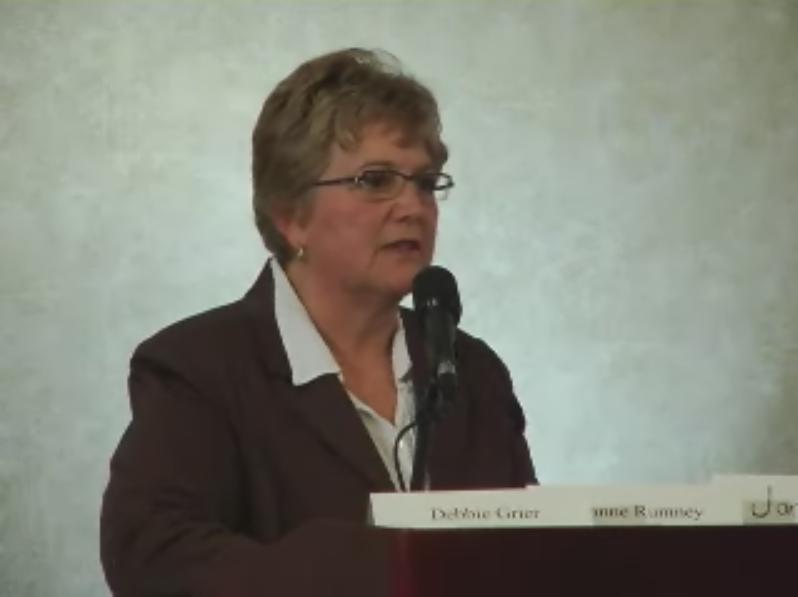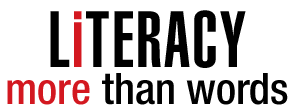Adult Literacy
Many forum speakers pointed to the startling statistic that 42 per cent of the Canadian population—nine million people—between 16 and 65 years of age have literacy levels that do not permit their full engagement in a knowledge-based society.
The presentations below speak to the complexity of the issues and challenges in adult literacy, and give examples of promising practices in addressing these challenges.
-
 Paul Belanger on Adult literacy, a new societal priority in late modernity
Paul Belanger on Adult literacy, a new societal priority in late modernity
Bio
Webcast
Presentation (PDF) -
 Connecting the Workplace to Classroom Instruction — Lois Morin with a panel of adult educators and employers
Connecting the Workplace to Classroom Instruction — Lois Morin with a panel of adult educators and employers
The workplace is a natural place for employment and learning systems to connect, allowing adult educators to connect the knowledge and skills acquired in the classroom with the skills critical for success in the workplace. In this session, the presenters provide an overview of how visiting a workplace and interviewing employees have an impact on preparation for education and employment. Panel members share their perspectives of the partnership experience.
Webcast -
 Literacy Lives Here: An Aurora College Video Project — Suzanne Robinson
Literacy Lives Here: An Aurora College Video Project — Suzanne Robinson
Drawing on experiences as an instructor in Development Studies at Aurora College in Inuvik, Northwest Territories, Suzanne discusses a video project that is part of an outreach literacy course that celebrates and promotes education and literacy in the Western Arctic with northern students.
Webcast -
 Adult Literacy — Anna Kae Todd
Adult Literacy — Anna Kae Todd
The Alberta presenter provides a postsecondary view of family and community literacy through an institutional and system perspective.
Webcast -
 One Woman’s Story: A Literacy Journey — Lillian Gallant
One Woman’s Story: A Literacy Journey — Lillian Gallant
Lillian grew up working in the fields, with little formal schooling. In this presentation, she recalls how she started a family in her teens, became a single parent in her late 20s, and was an alcoholic in her 30s. This is her story of success, and how she now gives back to her community.
Webcast -
 Alberta Literacy Story — Danny Haines
Alberta Literacy Story — Danny Haines
Danny shares his story of struggles with literacy and addiction, as well as his personal triumphs. He remains involved in adult literacy and uses his story to motivate other learners to achieve their goals.
Webcast -
 Alberta Literacy Story — Annette Mireau
Alberta Literacy Story — Annette Mireau
A student in Edmonton, Annette talks about the importance of words, stories, characters, and imagination, and what literacy means and has meant in her life.
Webcast (French) -
 What Does it Mean to be Literate in the 21st Century? — Guy Albert, Jeff Cook, Debbie Taylor-Gallant, and John Wishart
What Does it Mean to be Literate in the 21st Century? — Guy Albert, Jeff Cook, Debbie Taylor-Gallant, and John Wishart
Panellists discuss this topic from their perspectives as a learner, parent, business person, and educator. Each presenter shares his/her version of, and visions for, literacy in an age dominated by technology.
Webcast: Jeff Cook
Webcast: John Wishart
Webcast: Guy Albert
Webcast: Debbie Taylor-Gallant -
 Community Adult Literacy: Alberta — Janet Lane
Community Adult Literacy: Alberta — Janet Lane
This presentation looks at Alberta literacy statistics and asks: What about the 40 per cent of Albertans who struggle with things the rest of us take for granted? Janet looks at the importance of a full range of community adult-literacy programs, with the overall goal of ensuring that all people have the opportunity to give their unique gifts to the world.
Webcast -
 Common Assessment Using Essential Skills — Anne Ramsay, Dianne Rumney, and Debbie Grier
Common Assessment Using Essential Skills — Anne Ramsay, Dianne Rumney, and Debbie Grier
It is critical to identify what adult learners need to know and be able to do in order to help them make a successful transition to their next steps. The presenters discuss a partnership to provide a common assessment language to support a continuum of learning, from high school to adult education and training. The purpose is to develop and test a consistent approach to assessing adult learners’ attainment of essential skills. This will ensure that adult learners are guided into the appropriate program to meet their learning goals in the quickest and most effective way.
Webcast -
 A Vision for Adult Literacy in Quebec
A Vision for Adult Literacy in Quebec
This workshop deals with Quebec’s vision for adult literacy and its effects; with the sharing of efforts in the struggle against illiteracy; and with the search for effective solutions to help enhance and retain basic skills.
Webcast (French) -
 Low Literacy Challenges — Health and Aging of the Population
Low Literacy Challenges — Health and Aging of the Population
The discussions of this workshop focus on raising stakeholders’ awareness of the challenges created by low literacy in terms of health and the aging of the population, in order to implement joint remedial measures.
Webcast (French) -
 How Adults Express Training Needs and How to Adapt Services Accordingly
How Adults Express Training Needs and How to Adapt Services Accordingly
Participants were asked to suggest new approaches to promoting literacy services that are adapted to the characteristics of the target population and the ways in which training needs are expressed.
Webcast (French) -
 Retention of Reading and Writing Skills — A Collective Responsibility
Retention of Reading and Writing Skills — A Collective Responsibility
This workshop addresses possible concerted action on the part of social, economic, and cultural stakeholders to promote the retention of reading and writing skills through everyday activities.
Webcast (French) -
 Interview with Nicole Roy and Céline Gaudreault, recipients of the Council of the Federation Literacy Award.
Interview with Nicole Roy and Céline Gaudreault, recipients of the Council of the Federation Literacy Award.
Webcast -
 Literacy and Employment Ontario — Marie-Lison Fougère and Kevin French
Literacy and Employment Ontario — Marie-Lison Fougère and Kevin French
Employment Ontario promises that Ontarians will have the services and support they need to succeed in today’s job market. The Literacy and Basic Skills program is the support that EO clients often need to ensure successful learning or work outcomes. The presenters discuss key government policy and program initiatives, while participants have an opportunity to talk about the opportunities and challenges they see for EO and LBS.
Webcast
Presentation (Fougère) (PDF)
Presentation (French) (PDF) -
 The Ontario Skills Passport (OSP) — Chantal Locatelli
The Ontario Skills Passport (OSP) — Chantal Locatelli
Chantal discusses the Ontario Skills Passport, a bilingual, web-based resource that provides clear descriptions of the essential skills and work habits needed for success in the workplace. Learners and job seekers are now using the OSP in schools and training programs across Ontario to learn about and develop essential skills and work habits.
Webcast -
 Demystifying Essential Skills — Sandi Hennessey
Demystifying Essential Skills — Sandi Hennessey
As part of a new initiative in Ontario, Learner Skill Attainment, gains in the three essential skills of reading text, document use, and numeracy will be part of reporting requirements. What are the essential skills, and where did they come from? How do you measure them? What are they used for, and why are they important? This session links the answers to these questions to work, life, learning, and current literacy initiatives.
Webcast -
 Employment Track Express — Sandi Hennessey
Employment Track Express — Sandi Hennessey
This session explores a four-week, 60-hour course aimed at laid-off workers who need research, goal-setting, and computer skills to access labour-market information. A panel presentation includes a review of the project from the perspectives of development, recruitment, participation approval, and pilot delivery.
Webcast -
 A Winning Outlook on Recruiting — Celinie Russell
A Winning Outlook on Recruiting — Celinie Russell
Ontario recruits just 1 per cent of those who could benefit from basic training. In this session, Celinie presents the results of research being conducted into how to better understand the processes that make someone register for literacy and basic training. The many surveys conducted shed interesting light that will change recruiting methods.
Webcast (French) -
 Theatre of Learners’ Voices
Theatre of Learners’ Voices
In a powerful presentation, adult learners tell their stories of how they improved their literacy skills.
Webcast


